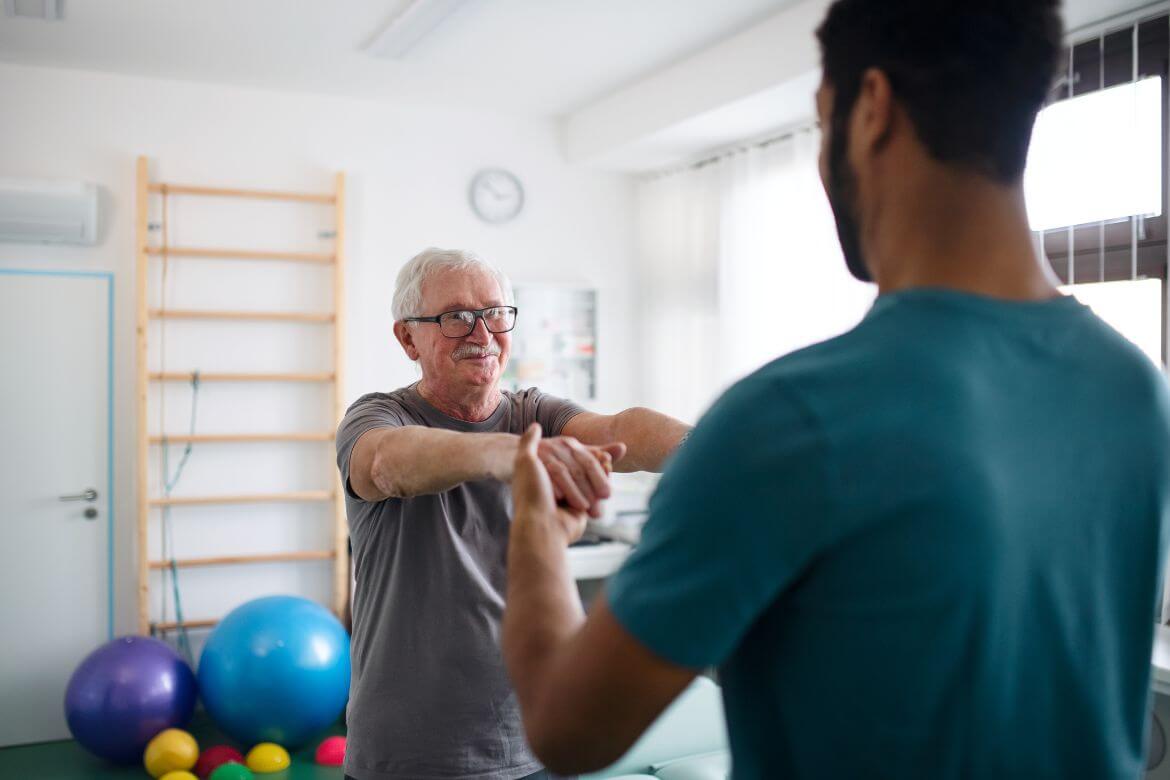
Neuro rehabilitation is a vital process for individuals recovering from neurological conditions like stroke, traumatic brain injury, or neurodegenerative diseases. If you or a loved one is embarking on this journey, it’s natural to have questions and concerns. This blog aims to simplify what neuro rehabilitation involves and what you can expect throughout your treatment.
What is Neuro Rehabilitation?
Neuro rehabilitation is a specialized therapy designed to help individuals regain lost skills and improve their quality of life following neurological impairments. The goal is to maximize independence and functional abilities by addressing physical, cognitive, and emotional challenges. It involves a team of healthcare professionals, including neurologists, physiotherapists, occupational therapists, speech-language pathologists, and psychologists.
The Initial Assessment
Your journey begins with an initial assessment. This evaluation helps your rehabilitation team understand your specific needs and goals. During this assessment, you’ll likely undergo a series of tests and discussions to evaluate your abilities, limitations, and overall health.
- Medical History Review: Your healthcare provider will review your medical history, including any neurological conditions, previous treatments, and overall health status.
- Functional Assessment: The team will assess your ability to perform daily activities, such as walking, dressing, or cooking. This helps identify areas where you may need support.
- Cognitive and Emotional Evaluation: Since neurological conditions can impact cognitive and emotional health, assessments may include tests for memory, attention, and mood.
Developing a Personalized Treatment Plan
Once the assessment is complete, your team will develop a personalized treatment plan tailored to your needs. This plan will outline your rehabilitation goals, the types of therapies you will receive, and the frequency of sessions.
- Goal Setting: Your rehabilitation goals will be based on your needs and desires. Whether you want to improve your mobility, regain speech abilities, or enhance your cognitive functions, your goals will guide your treatment plan.
- Therapy Types: Your plan may include a variety of therapies, such as physical therapy to improve movement, occupational therapy to enhance daily living skills, and speech therapy to address communication issues.
- Schedule: The frequency and duration of therapy sessions will vary depending on your condition and progress. Your team will create a schedule that works best for you.
Types of Neuro Rehabilitation Therapies
Neuro rehabilitation includes several types of therapies, each targeting different aspects of recovery. Here’s a closer look at what you might experience:
- Physical Therapy: Physical therapy focuses on improving mobility, strength, and coordination. Your therapist may use exercises, balance, and gait training to help you regain physical function.
- Occupational Therapy: Occupational therapy helps you develop or regain skills needed for daily activities. This might include training on adaptive devices, improving fine motor skills, and learning techniques to make daily tasks easier.
- Speech-Language Therapy: If you have difficulty with speech or swallowing, speech-language therapy can help. Therapists work on improving communication skills, understanding and producing speech, and addressing any swallowing difficulties.
- Cognitive Therapy: Cognitive therapy targets cognitive impairments, such as memory, attention, and problem-solving skills. Techniques might include cognitive exercises, memory aids, and strategies to improve daily functioning.
- Psychological Support: Neuro rehabilitation often includes psychological support to help you cope with emotional challenges. This might involve counseling, stress management techniques, and support groups.
What to Expect During Your Treatment
As you progress through neuro rehabilitation, here’s what you can expect:
- Regular Therapy Sessions: You will attend therapy sessions as scheduled in your treatment plan. Consistency is key to progress, so attend all sessions and follow your therapist’s recommendations. Concerned about your recovery in pune? Don’t hesitate! At The Physio9 Clinic, our specialist physiotherapists are here to help with your neuro rehabilitation in Pune. Contact us today for personalized care!
- Progress Monitoring: Your rehabilitation team will regularly assess your progress to see how well you meet your goals. Based on your progress, they may adjust your treatment plan as needed.
- Home Exercises: In addition to in-clinic therapy, you may be given exercises or activities to complete at home. These exercises are designed to reinforce what you’re learning during therapy sessions.
- Challenges and Setbacks: Recovery can be a gradual process with ups and downs. You might face challenges or experience setbacks along the way. Staying positive and motivated and communicating concerns with your team is important.
- Support and Encouragement: Your rehabilitation team will provide ongoing support and encouragement. They are there to help you navigate the challenges of recovery and celebrate your successes, no matter how small.
How to Make the Most of Your Rehabilitation
To get the best results from your neuro rehabilitation, consider the following tips:
- Stay Committed: Commit to your treatment plan and follow through with recommended therapies and exercises. Consistent effort can lead to better outcomes.
- Communicate Openly: Communicate openly with your rehabilitation team. Share any concerns, ask questions, and provide feedback on your progress.
- Set Realistic Goals: Set achievable goals and celebrate your progress. Small victories can boost your motivation and confidence.
- Involve Family and Friends: A support system can make a big difference. Involve family and friends in your rehabilitation journey to help you stay motivated and encouraged.
- Be Patient: Recovery takes time. Be patient with yourself and trust the process. Progress may be slow, but persistence and a positive attitude can lead to meaningful improvements.
Conclusion
Understanding what to expect during neurorehabilitation can help alleviate some of the uncertainty and anxiety associated with the process. Knowing what to expect and how to prepare can help you approach your rehabilitation journey with confidence and optimism. Remember, neuro-rehabilitation is a collaborative effort, and with the right support and dedication, you can make significant strides toward recovery and a better quality of life.







